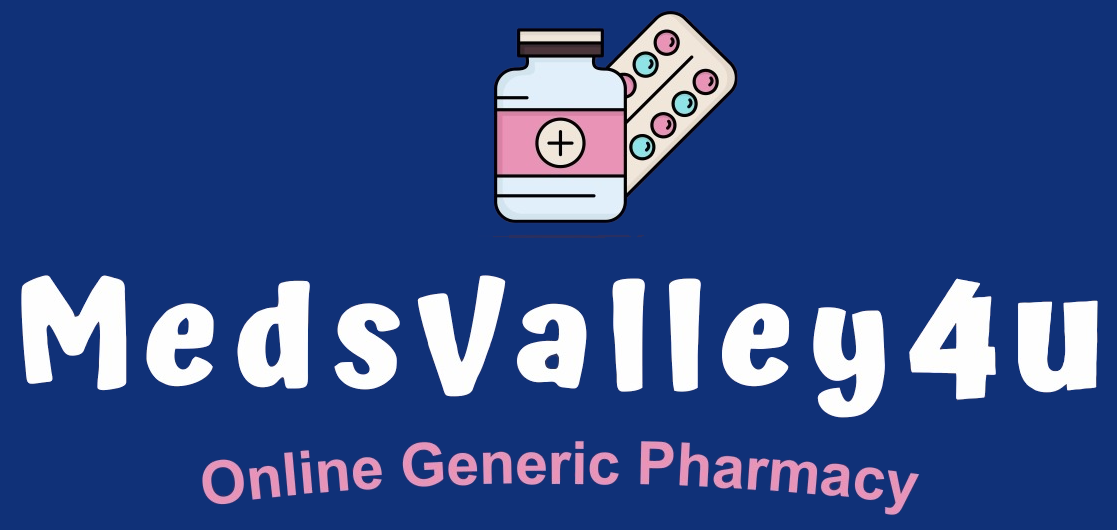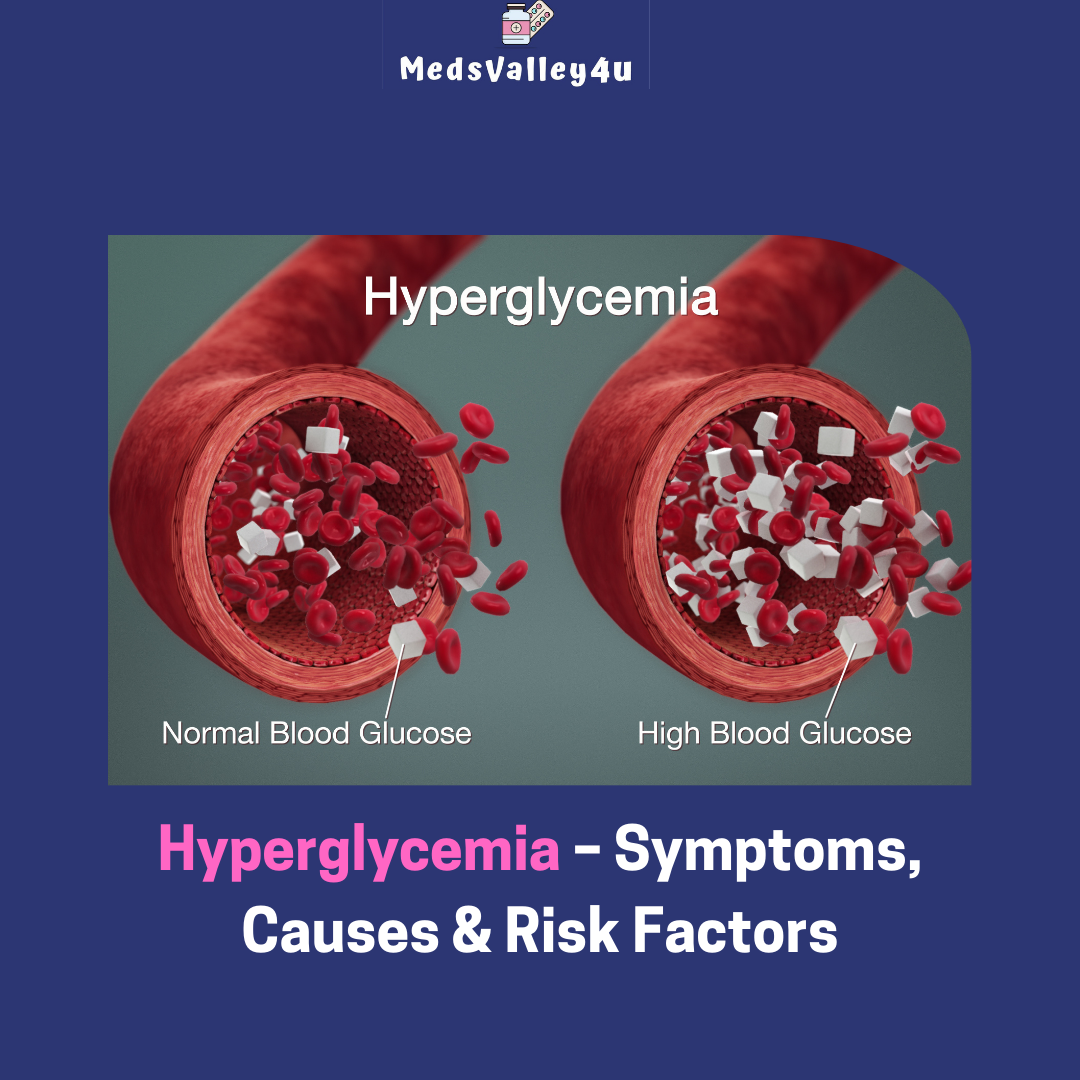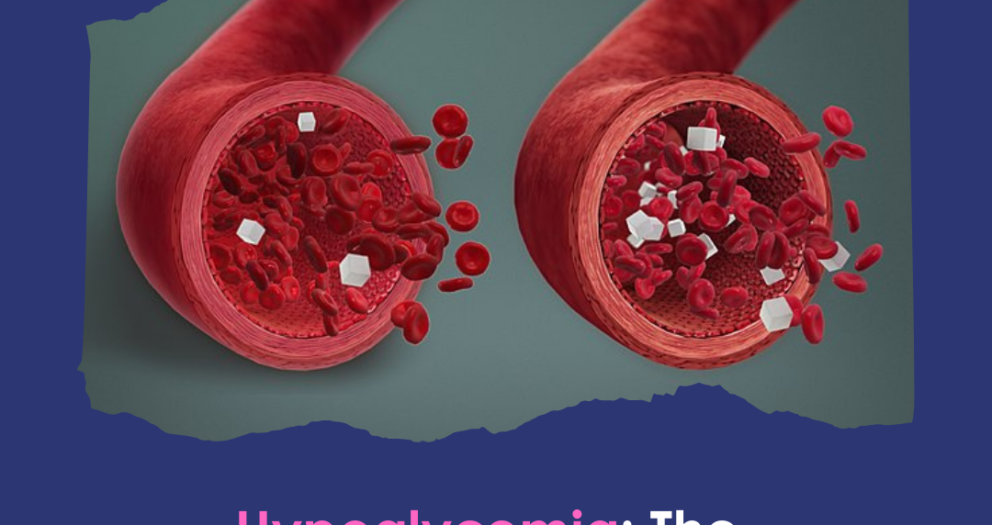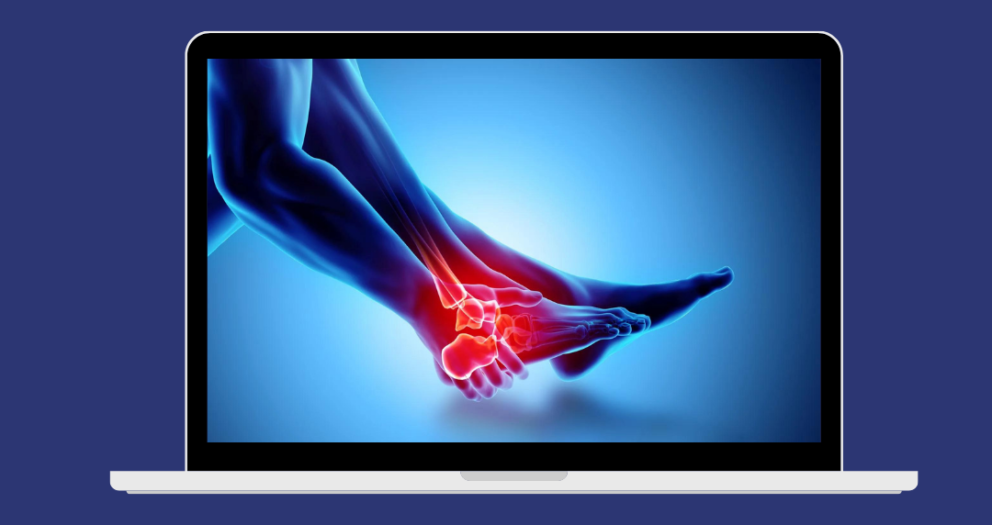Hyperglycemia, or high blood sugar, occurs when there is too much glucose in the bloodstream. It’s commonly associated with diabetes, but other health conditions and certain lifestyle factors can also lead to this state. Managing blood sugar levels is crucial because chronic hyperglycemia can cause serious complications affecting various body systems, particularly the heart, kidneys, and eyes. Understanding the symptoms, causes, and risk factors of hyperglycemia is essential for prevention and effective management.
What is Hyperglycemia?
Hyperglycemia is characterized by abnormally high levels of blood glucose. Glucose is the body’s main source of energy, and insulin, a hormone produced by the pancreas, helps transport glucose into cells to be used as fuel. When the body either doesn’t produce enough insulin or can’t use insulin efficiently (insulin resistance), glucose accumulates in the bloodstream, leading to hyperglycemia.
In non-diabetic individuals, the normal range for fasting blood sugar levels is between 70 and 100 mg/dL. Hyperglycemia is usually defined as blood glucose levels higher than 125 mg/dL when fasting or greater than 180 mg/dL two hours after a meal.
Symptoms of Hyperglycemia
Hyperglycemia can manifest in various ways, depending on how high the blood sugar levels are and how long they’ve been elevated. While mild hyperglycemia may not show obvious symptoms, prolonged or severe hyperglycemia can lead to the following:
- Frequent Urination (Polyuria): One of the most noticeable early signs of hyperglycemia is increased urination. The kidneys attempt to eliminate the excess glucose by filtering it out through urine, leading to more frequent trips to the bathroom.
- Increased Thirst (Polydipsia): As the body loses more water through frequent urination, it becomes dehydrated, triggering excessive thirst. This is a common symptom, especially in cases of prolonged hyperglycemia.
- Blurred Vision: High blood sugar can affect the lenses in the eyes, causing them to swell. This swelling changes the shape of the lens, leading to blurry or distorted vision.
- Fatigue: With too much glucose in the bloodstream and not enough entering the cells for energy, the body becomes fatigued. This lack of energy is a hallmark symptom of hyperglycemia.
- Headaches: Elevated blood sugar can cause recurrent headaches as the body’s metabolic processes become imbalanced.
- Slow Healing of Wounds: High glucose levels impair the body’s ability to heal, leading to slow recovery from cuts, sores, or infections.
- Unexplained Weight Loss: When glucose can’t enter the cells, the body may start breaking down fat and muscle for energy, resulting in unintentional weight loss.
- Dry Mouth and Skin: Dehydration from excessive urination can cause dryness in the mouth and skin.
- Fruity-Smelling Breath: When blood sugar levels are extremely high, the body may start breaking down fat, resulting in the production of ketones. A buildup of ketones can cause breath to smell fruity or acetone-like. This is a sign of a serious condition called diabetic ketoacidosis (DKA), which requires immediate medical attention.
Causes of Hyperglycemia
The causes of hyperglycemia are often related to diabetes, but it can occur in other contexts as well. Here are the most common causes:
- Diabetes Mellitus (Type 1 and Type 2):
- Type 1 Diabetes: In this autoimmune disorder, the body’s immune system attacks the insulin-producing cells in the pancreas, resulting in little to no insulin production. Without insulin, glucose accumulates in the blood, leading to hyperglycemia.
- Type 2 Diabetes: In this more common form of diabetes, the body either becomes resistant to insulin or doesn’t produce enough insulin. This impairs glucose regulation and can result in high blood sugar levels.
- Infections and Illness: During infections or illness, stress hormones like cortisol and adrenaline are released, which can increase blood sugar levels. People with diabetes may notice higher glucose readings during sickness.
- Stress: Both emotional and physical stress can cause a temporary spike in blood sugar due to the release of stress hormones. Chronic stress can lead to sustained periods of high blood sugar, particularly in people with diabetes.
- Medications: Certain medications, such as steroids (e.g., prednisone), diuretics, and some psychiatric drugs, can elevate blood sugar levels.
- Overeating (Particularly High-Carb Foods): Consuming excessive carbohydrates, particularly refined carbs and sugary foods, can lead to postprandial (after-eating) hyperglycemia. In people with diabetes, the body can’t process large amounts of glucose efficiently, leading to spikes in blood sugar levels.
- Lack of Physical Activity: Regular exercise helps the body use insulin more efficiently and allows muscles to use more glucose. A sedentary lifestyle can contribute to insulin resistance and hyperglycemia.
- Skipping or Irregular Use of Diabetes Medication: In people with diabetes, failing to take prescribed insulin or oral medications can quickly lead to elevated blood sugar levels.
- Hormonal Changes: Hormonal fluctuations, such as those occurring during pregnancy (gestational diabetes) or conditions like Cushing’s syndrome, can increase blood sugar levels.
- Surgery or Trauma: Physical trauma or major surgery can lead to a rise in blood sugar levels due to the body’s stress response.
Risk Factors for Hyperglycemia
Certain risk factors increase the likelihood of developing hyperglycemia. These include both lifestyle factors and underlying health conditions:
- Diabetes: Having Type 1, Type 2, or gestational diabetes is the primary risk factor for hyperglycemia. People with diabetes need to closely monitor their blood sugar levels to prevent hyperglycemia.
- Family History of Diabetes: Genetics play a role in both Type 1 and Type 2 diabetes. A family history of diabetes increases the risk of hyperglycemia, especially in Type 2 diabetes, which is more strongly associated with hereditary factors.
- Obesity: Excess body fat, particularly around the abdomen, increases the risk of insulin resistance. This resistance can cause blood sugar levels to rise, especially in individuals with Type 2 diabetes.
- Sedentary Lifestyle: Lack of physical activity contributes to obesity and insulin resistance, both of which increase the risk of hyperglycemia.
- Poor Diet: Diets high in processed foods, refined sugars, and unhealthy fats can lead to obesity and insulin resistance, contributing to the development of hyperglycemia.
- Age: As people age, their risk of developing Type 2 diabetes and hyperglycemia increases due to the natural decline in insulin sensitivity.
- High Blood Pressure: Hypertension (high blood pressure) is often linked to insulin resistance and metabolic syndrome, increasing the risk of hyperglycemia.
- Chronic Stress: Ongoing emotional or psychological stress can contribute to long-term increases in blood sugar levels due to the persistent release of stress hormones like cortisol.
- Smoking and Alcohol: Smoking and excessive alcohol consumption are associated with poor blood sugar control and an increased risk of Type 2 diabetes, both of which can lead to hyperglycemia.
- Pregnancy: Women who develop gestational diabetes during pregnancy are at higher risk of hyperglycemia. Additionally, women who have had gestational diabetes are more likely to develop Type 2 diabetes later in life.
Complications of Uncontrolled Hyperglycemia
If left untreated, chronic hyperglycemia can lead to serious health complications, including:
- Cardiovascular Disease: High blood sugar damages blood vessels and increases the risk of heart disease, stroke, and atherosclerosis.
- Kidney Damage (Nephropathy): Hyperglycemia can damage the small blood vessels in the kidneys, leading to kidney disease or even kidney failure over time.
- Nerve Damage (Neuropathy): Prolonged high blood sugar levels can damage the nerves, leading to symptoms like numbness, tingling, and pain, particularly in the extremities.
- Eye Damage (Retinopathy): Hyperglycemia can damage the blood vessels in the retina, leading to vision problems and, in severe cases, blindness.
- Diabetic Ketoacidosis (DKA): This life-threatening condition occurs when the body starts breaking down fat too quickly, producing ketones and causing the blood to become acidic. DKA requires emergency medical treatment.
- Infections: High blood sugar impairs the immune system, making individuals more susceptible to infections.
Final Words:-
Hyperglycemia is a serious condition that requires careful management, especially in individuals with diabetes. Early recognition of symptoms, proper diagnosis, and timely intervention are crucial for preventing complications. Lifestyle modifications, such as maintaining a balanced diet, regular physical activity, and stress management, can help control blood sugar levels and reduce the risk of hyperglycemia. In cases of persistent hyperglycemia, medical treatments like insulin or oral medications may be necessary to keep blood glucose levels within a healthy range.




Write a comment
Your email address will not be published. All fields are required